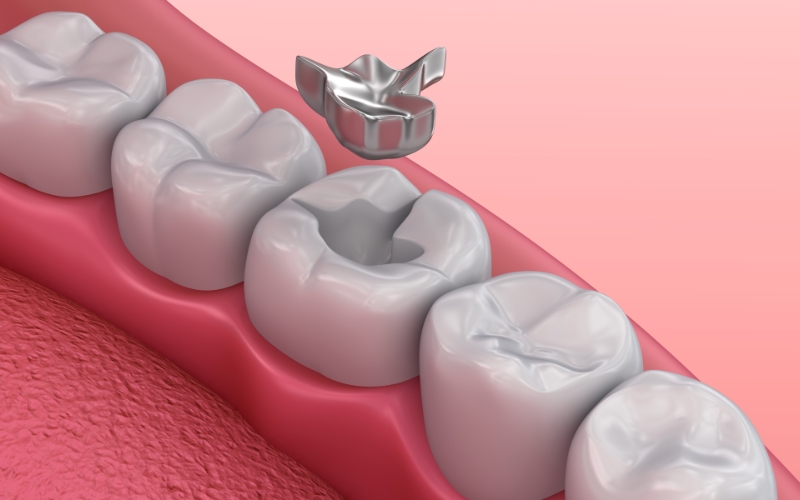1101-116 Grande Blvd, Cochrane, Alberta, T4C 2G4
How Dental Fillings Play a Role in Cavity Prevention? A Guide by Grande Dentistry

Tooth cavities develop gradually, sometimes even without one realizing they exist. As time goes by, however, they lead to sensitivity of the teeth, decay, and infection if left untreated. Dental fillings are a good solution to avoid cavities from developing further and maintain the teeth’s health. By sealing the damage done to a tooth, not only do fillings restore the gap, but they also stop the decay from progressing. Learn their role to take the right steps for a healthy smile.
What are fillings?
Fillings are materials that replace the form and function of a decayed tooth. Fillings take up the space left by cavities and keep bacteria from traveling further into the tooth. Dentistry now has different kinds of fillings available, such as composite resin, porcelain, and amalgam. Each type has its own advantages, so your dentist can choose the best one for where and how big the cavity is.
Fillings add another layer of protection, stopping potential infection or subsequent tooth decay. As American Dental Association research indicates, the earlier the filling is inserted, the more effectively it can prevent tooth decay from forming and keep the mouth healthy.
How Fillings Help Prevent Future Cavities
Fillings not only repair damage, but they are also a key component of preventative dental care. Once the decayed portion of a tooth has been removed, a filling seals the compromised sections of the tooth. It prevents bacteria and food particles from entering the cavity, which is critical in dental care.
Shielding Compromised Teeth
- Fillings restore strength to a compromised tooth structure.
- They prevent the tooth from cracking or breaking due to everyday pressure.
- They help to maintain the normal chewing function and alignment.
Early fillings on cavities reduce the likelihood of future decay. Fillings prevent teeth from cracking or wearing off, and your teeth are protected in the long term by checkups.
Preventive Benefits Beyond the Tooth
Even though fillings treat a single tooth, their impact reaches your whole oral health. Filling cavities at early stages reduces the number of more invasive treatments like crowns or root canals. Filling a cavity is a small, controlled procedure that prevents more invasive problems.
Moreover, fillings encourage better oral hygiene. The patient can notice the smoother surface on the filled tooth, which is simpler to brush and floss. Furthermore, knowing how fillings keep cavities at bay helps you value the significance of early visits to the dentist and proper oral care.
Signs You Might Need a Filling
Prevention is the key. Early detection will stop pain and help you avoid complex procedures in the future. You should pay a visit to your dentist if you are experiencing:
- Recurring sensitivity to hot, cold, or sweet foods
- Visible pits or holes within your teeth
- Dark discoloration or stains that won’t go away after brushing
- Biting or chewing causes pain
Getting early treatment turns fillings into a prevention and a repair, reducing future cavities.
Regular checkups from a dentist, along with the proper treatments such as dental fillings, are the key to healthy teeth. Stopping tooth decay early on and knowing how fillings will stop cavities means having your smile for years to come.
If you need a cavity or wish to hear more about your options for filling, schedule an appointment today at Grande Dentistry. We will assess your dental needs and provide solutions that can meet your dental goals.



